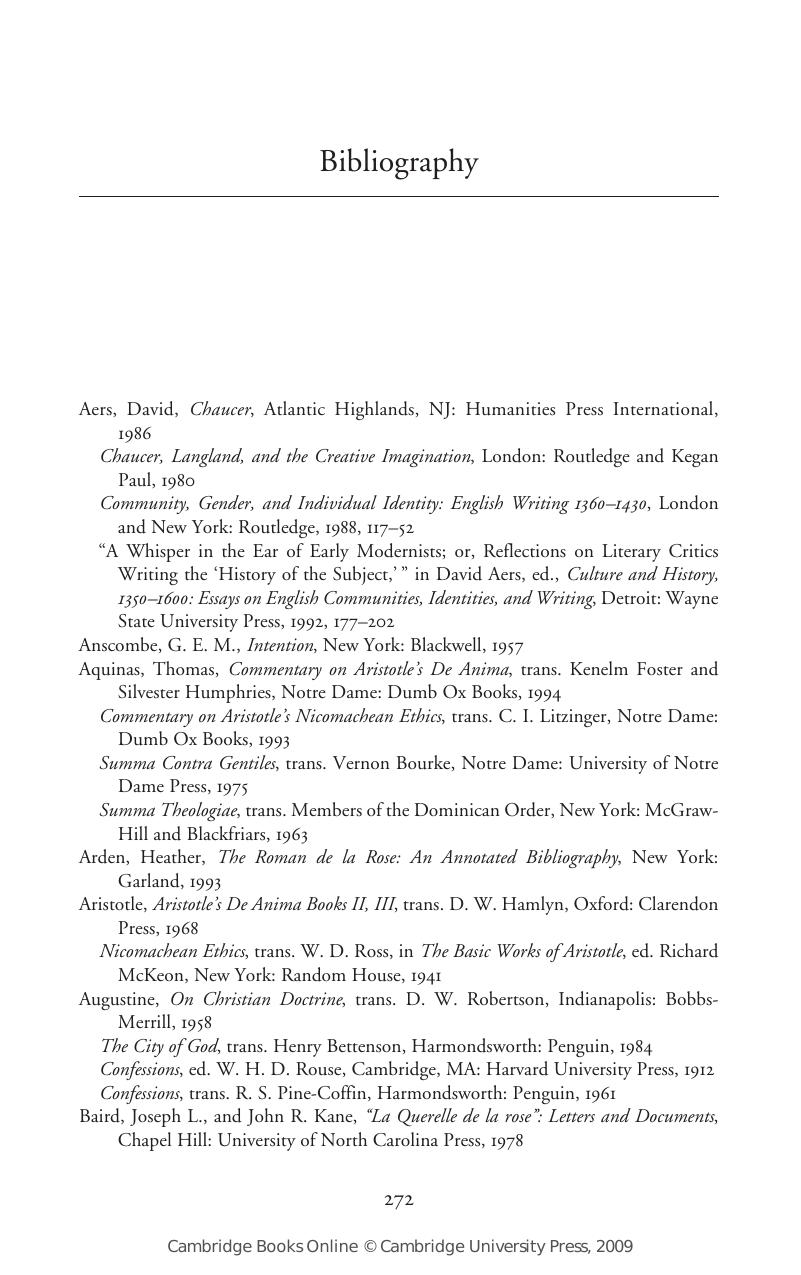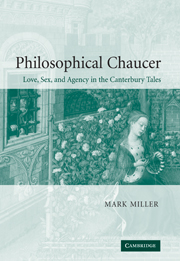Book contents
- Frontmatter
- Contents
- Acknowledgments
- Introduction: Chaucer and the problem of normativity
- Chapter 1 Naturalism and its discontents in the Miller's Tale
- Chapter 2 Normative longing in the Knight's Tale
- Chapter 3 Agency and dialectic in the Consolation of Philosophy
- Chapter 4 Sadomasochism and utopia in the Roman de la Rose
- Chapter 5 Suffering love in the Wife of Bath's Prologue and Tale
- Chapter 6 Love's promise: the Clerk's Tale and the scandal of the unconditional
- Notes
- Bibliography
- Index
- References
Bibliography
Published online by Cambridge University Press: 22 September 2009
- Frontmatter
- Contents
- Acknowledgments
- Introduction: Chaucer and the problem of normativity
- Chapter 1 Naturalism and its discontents in the Miller's Tale
- Chapter 2 Normative longing in the Knight's Tale
- Chapter 3 Agency and dialectic in the Consolation of Philosophy
- Chapter 4 Sadomasochism and utopia in the Roman de la Rose
- Chapter 5 Suffering love in the Wife of Bath's Prologue and Tale
- Chapter 6 Love's promise: the Clerk's Tale and the scandal of the unconditional
- Notes
- Bibliography
- Index
- References
Summary

- Type
- Chapter
- Information
- Philosophical ChaucerLove, Sex, and Agency in the Canterbury Tales, pp. 272 - 280Publisher: Cambridge University PressPrint publication year: 2005



